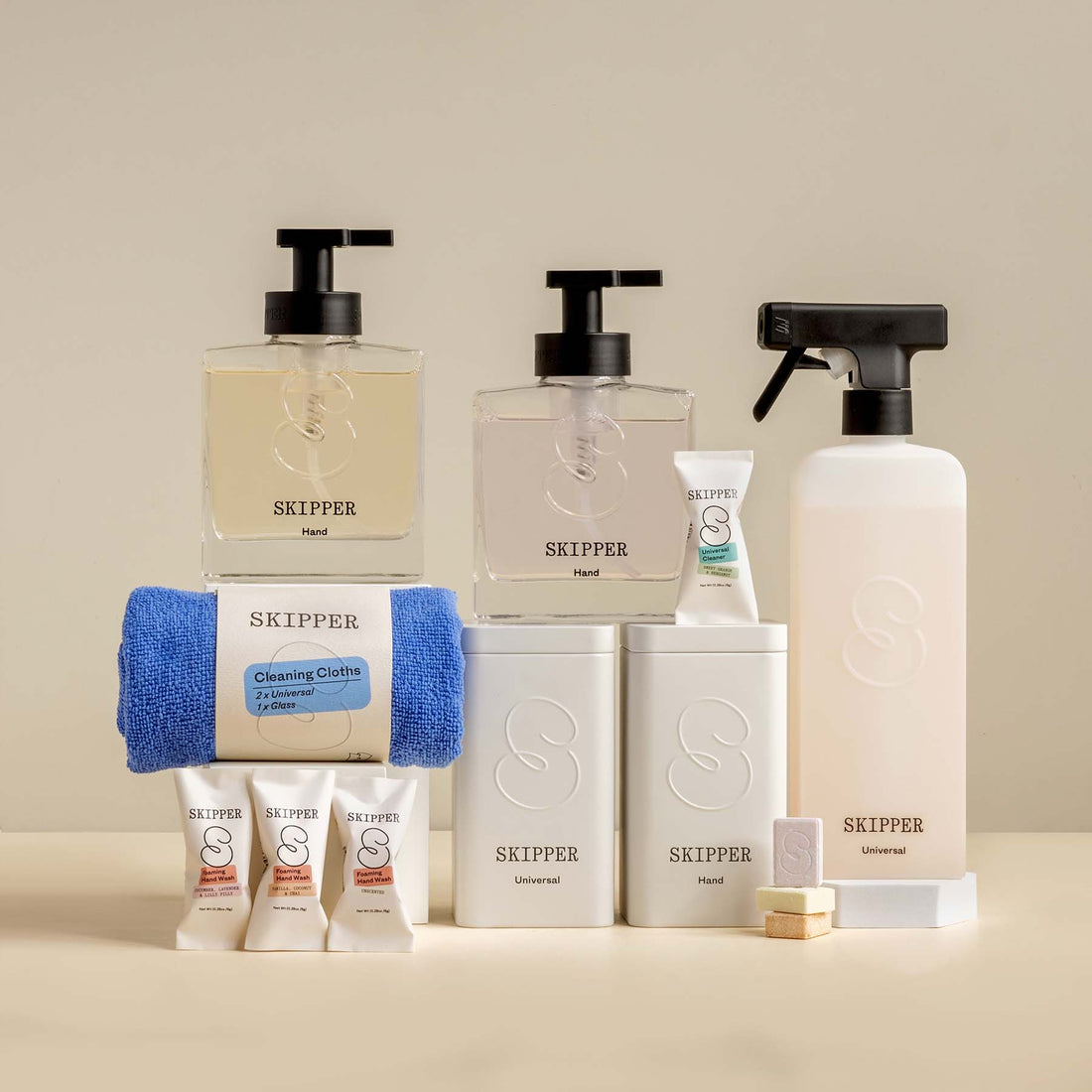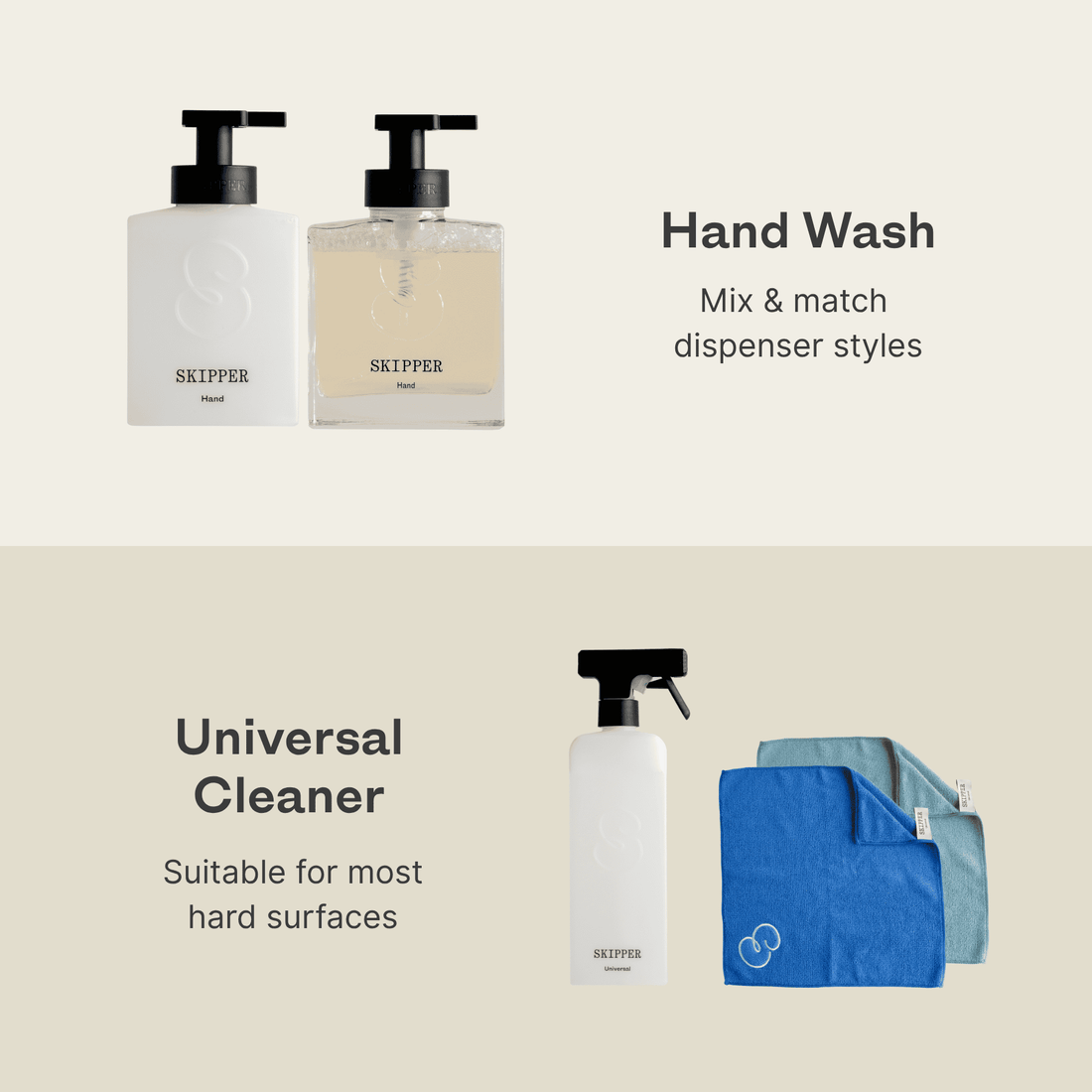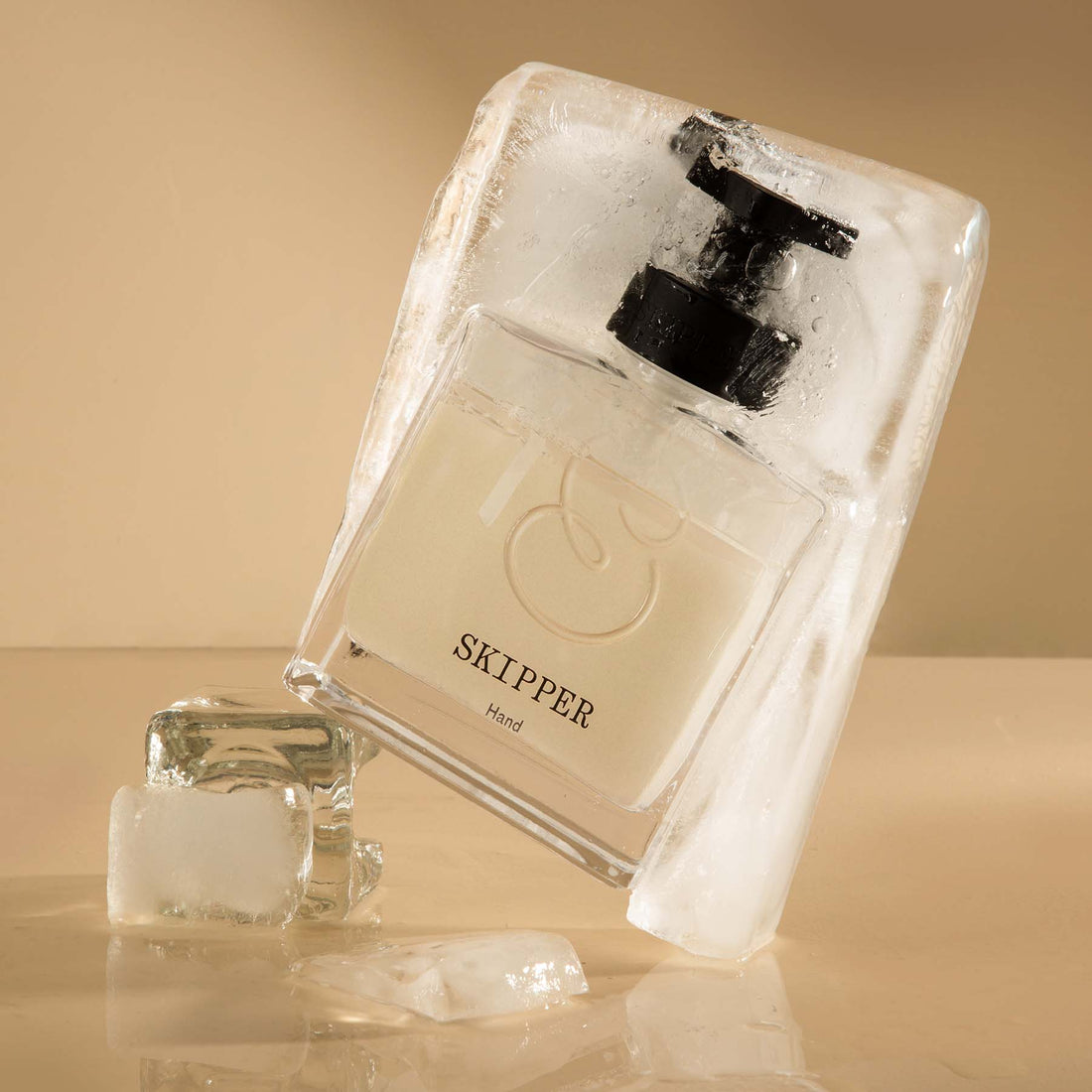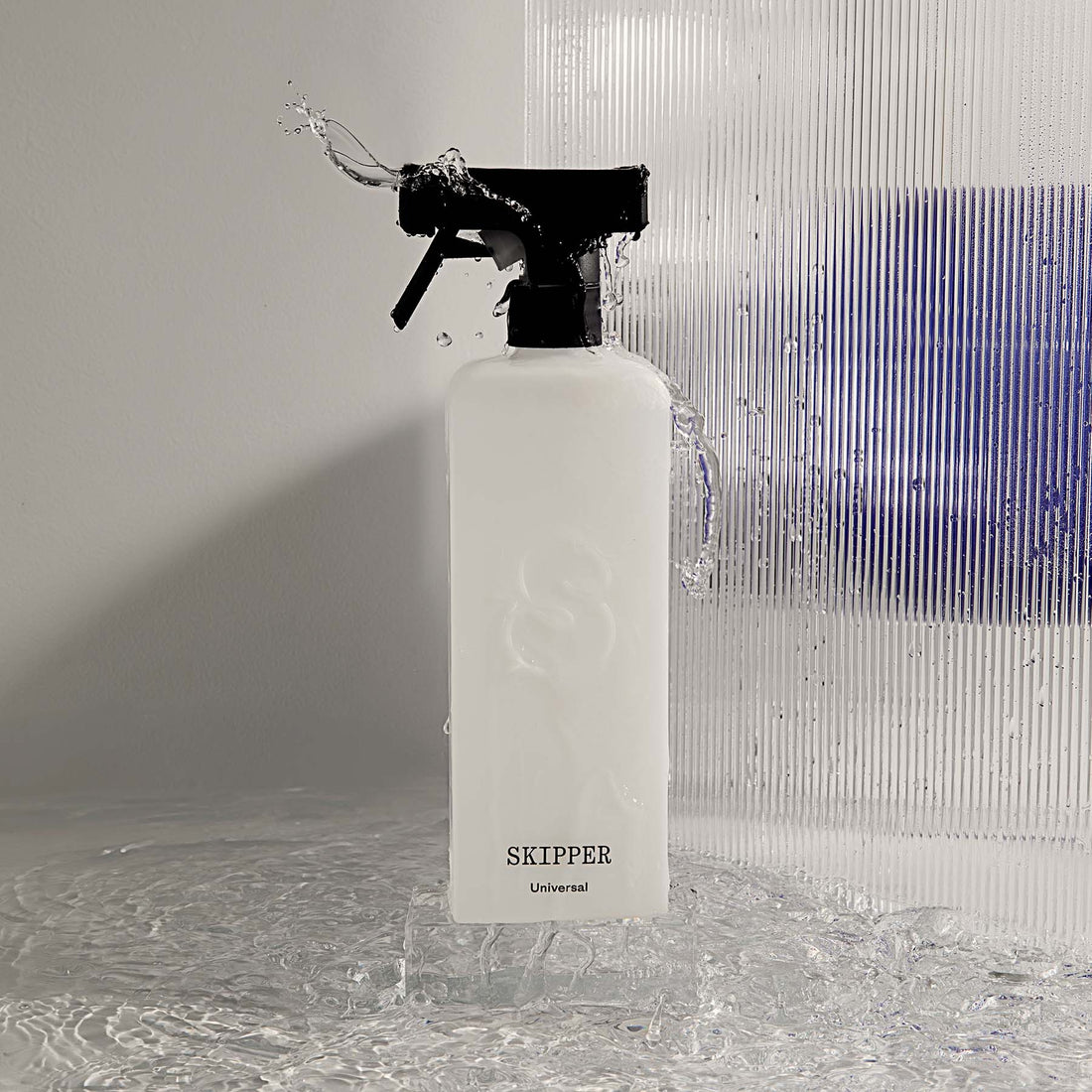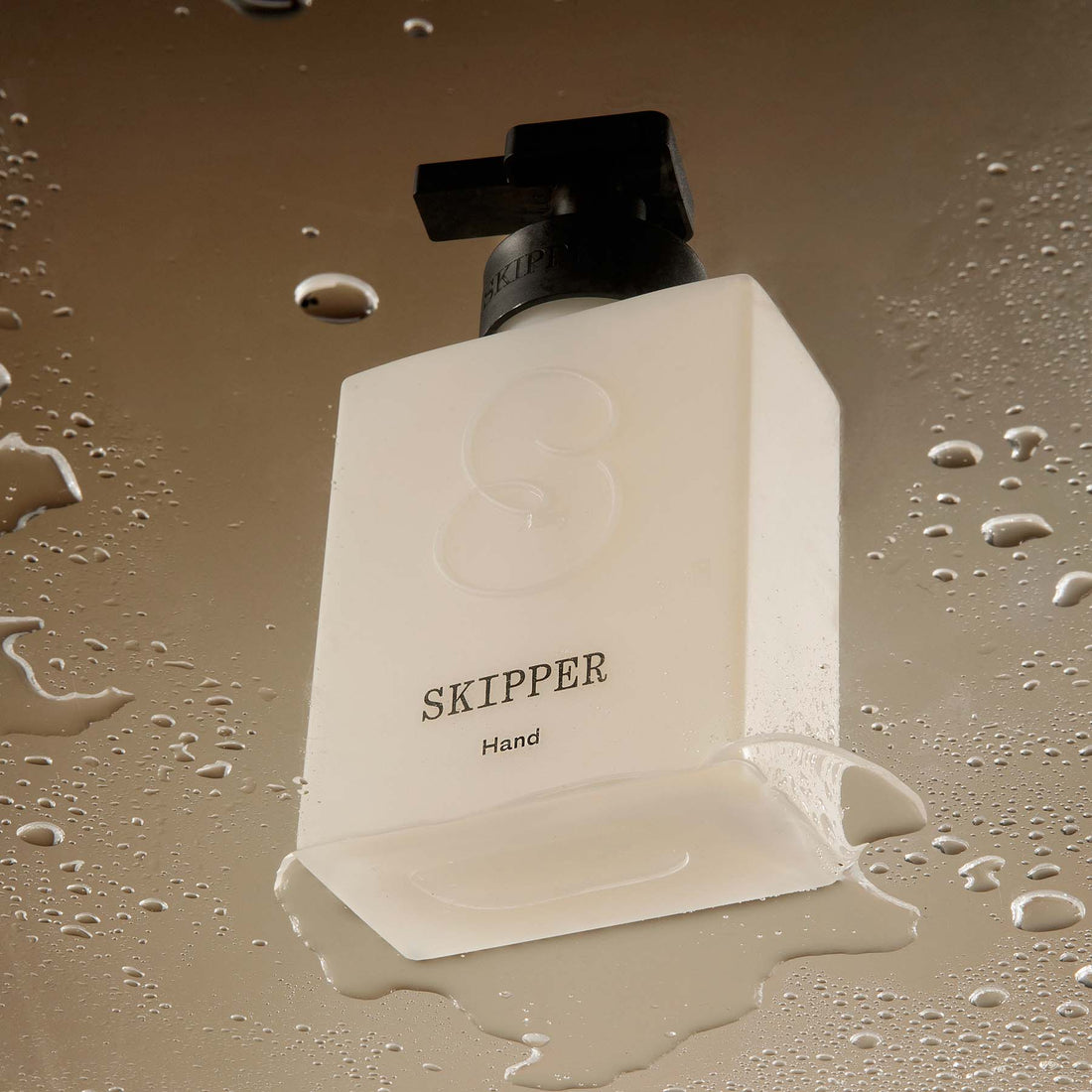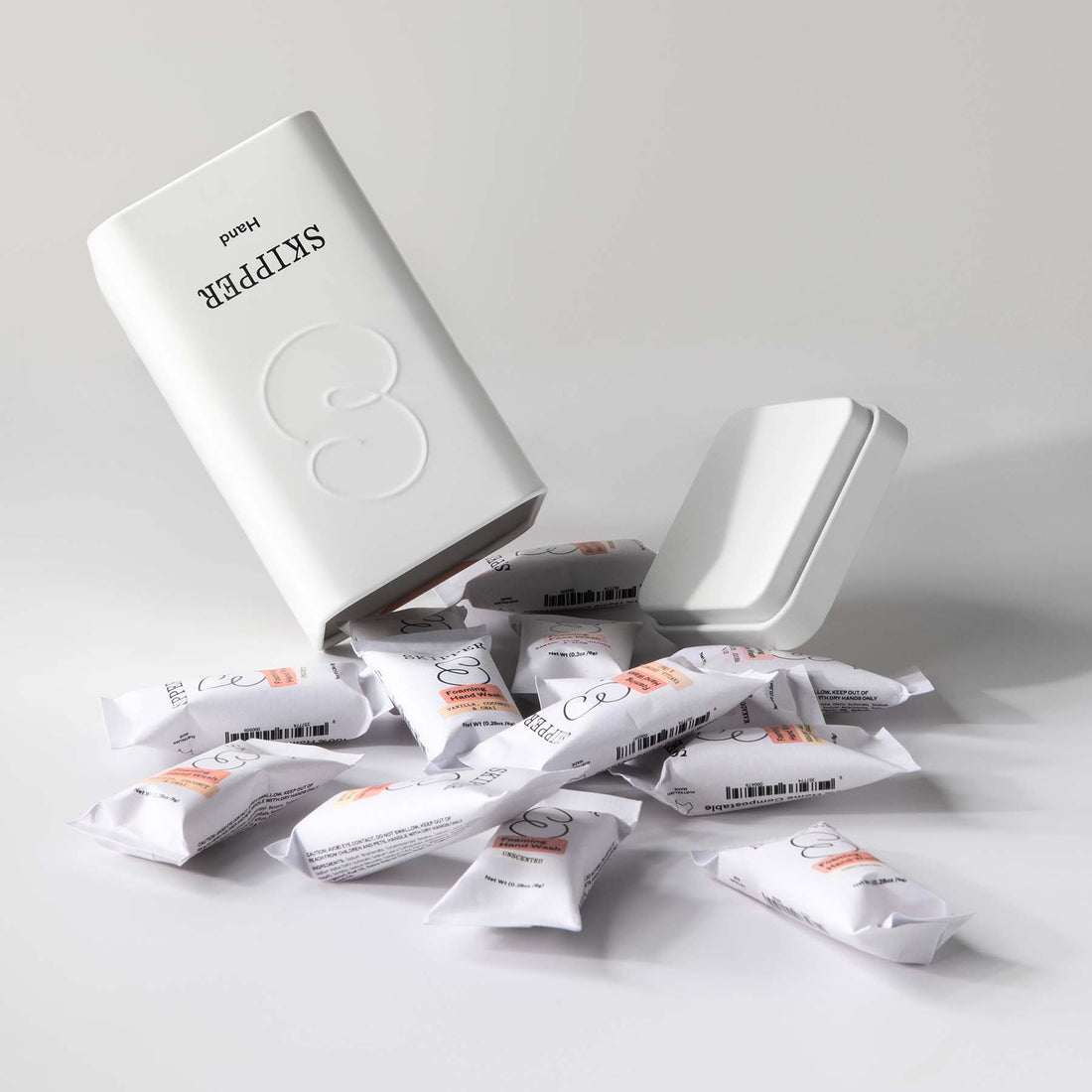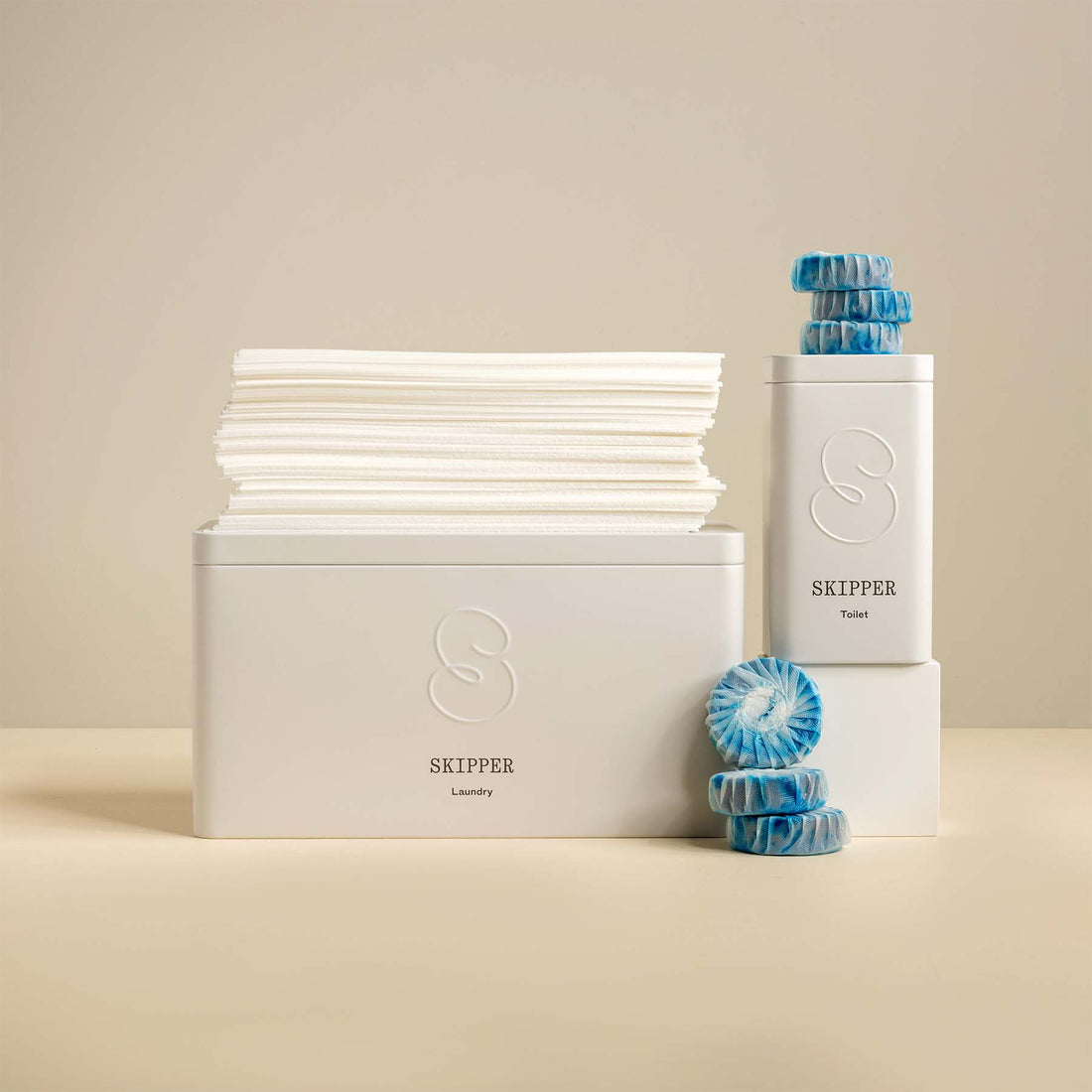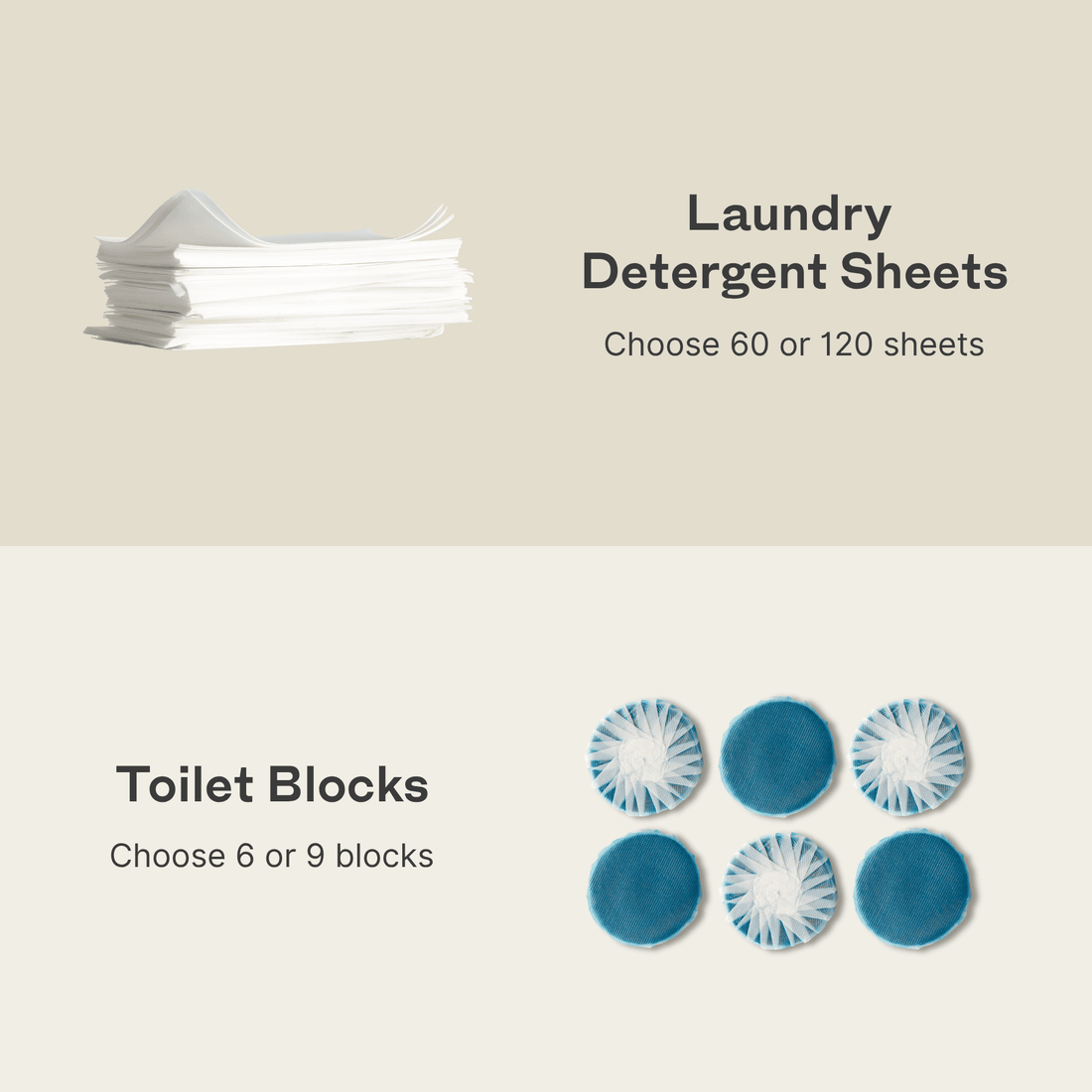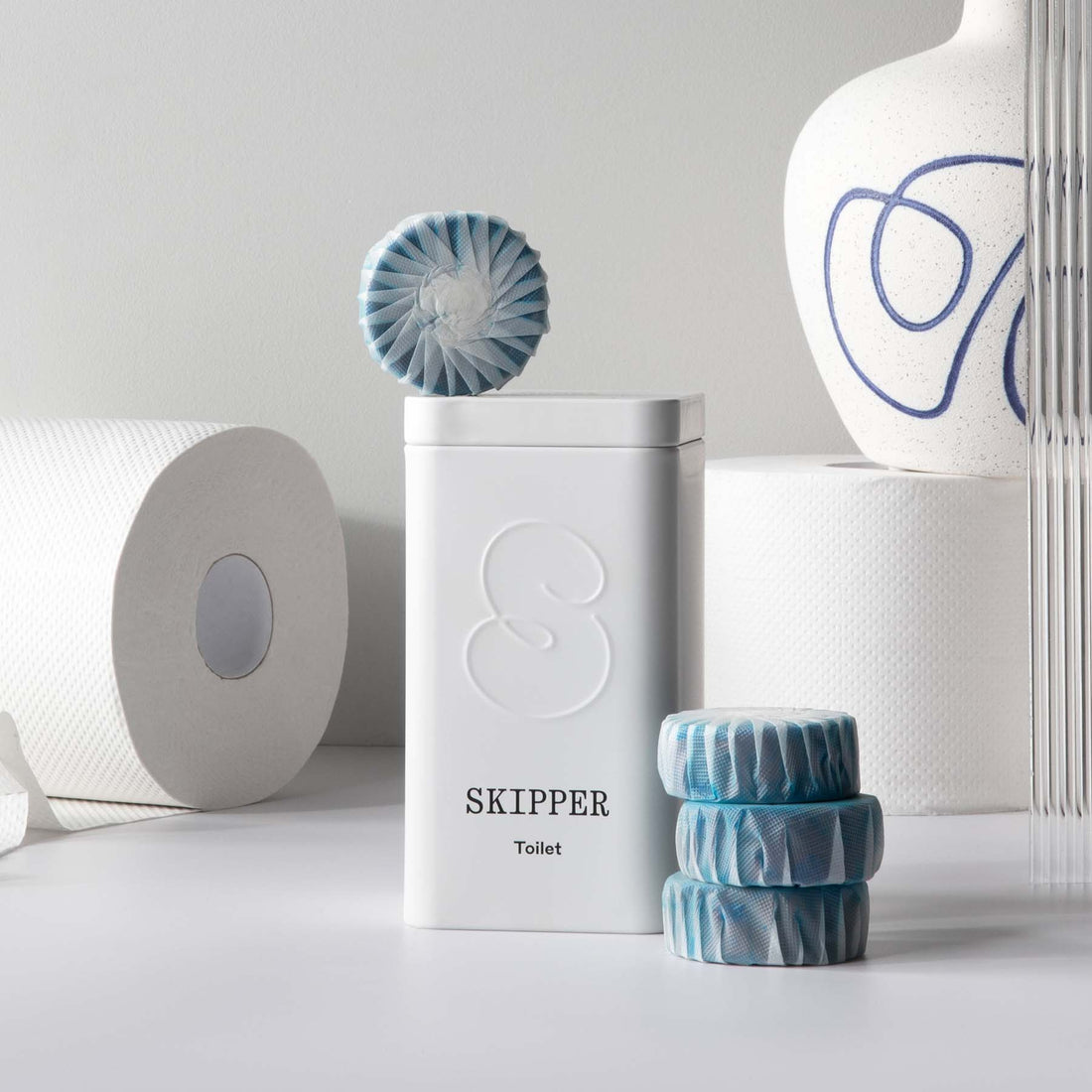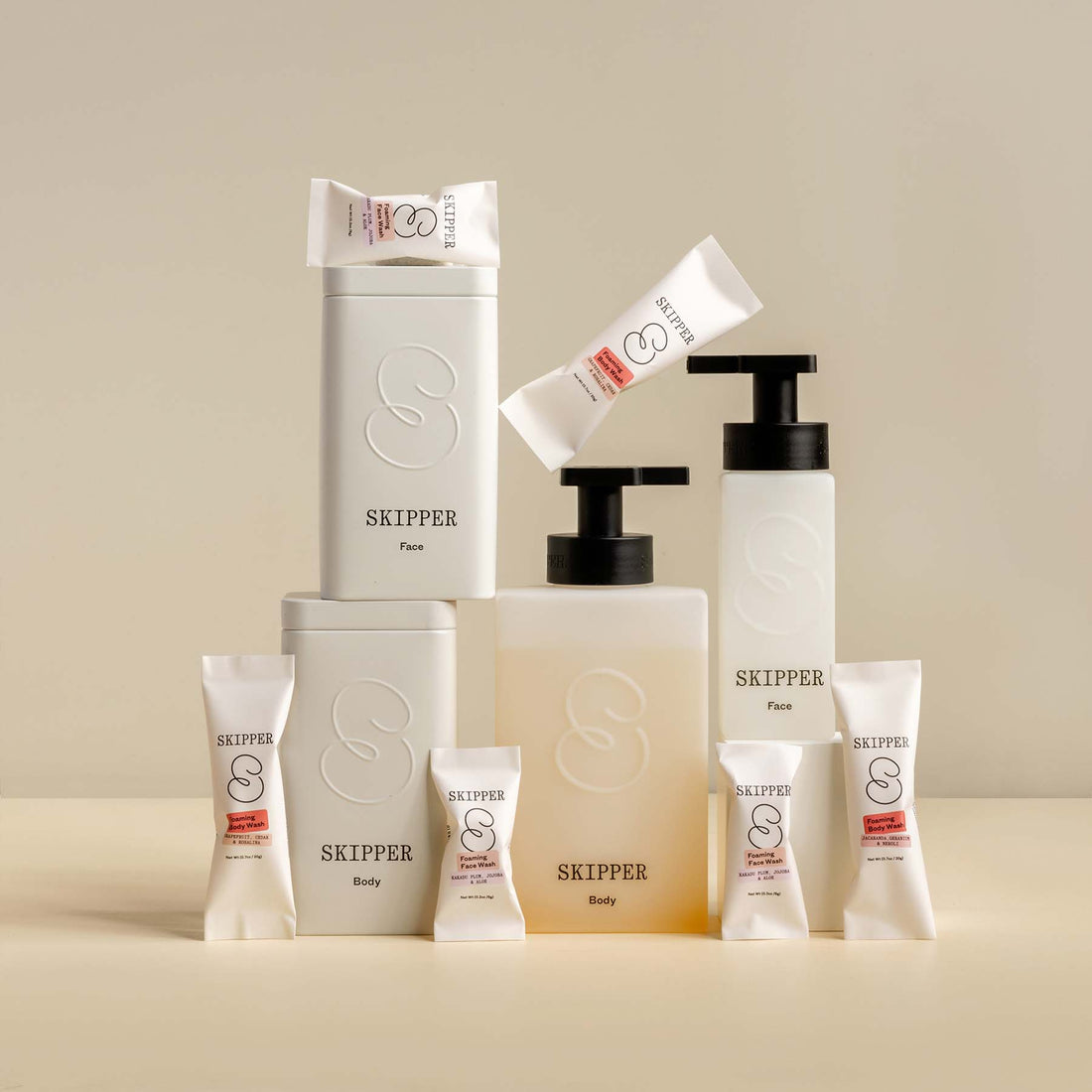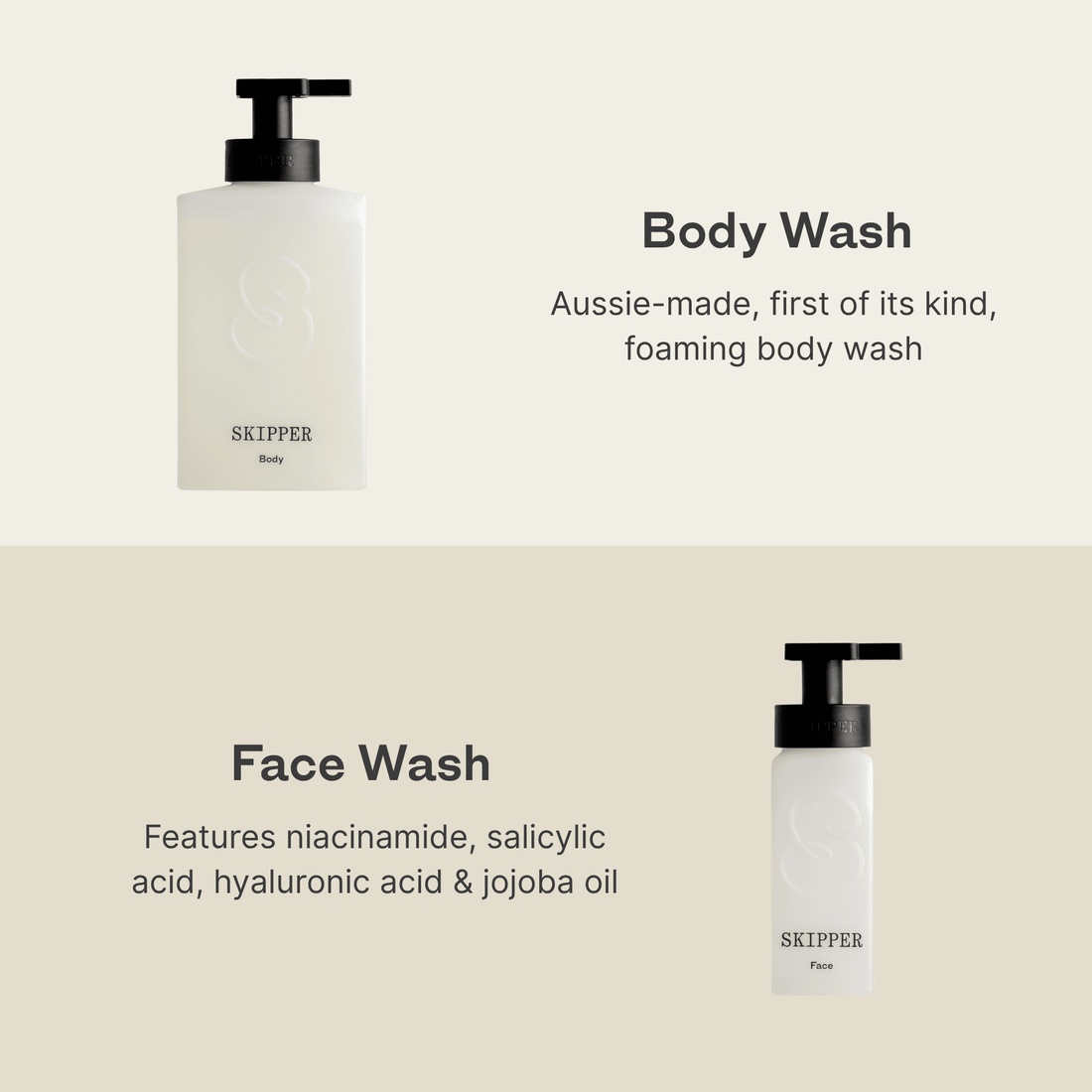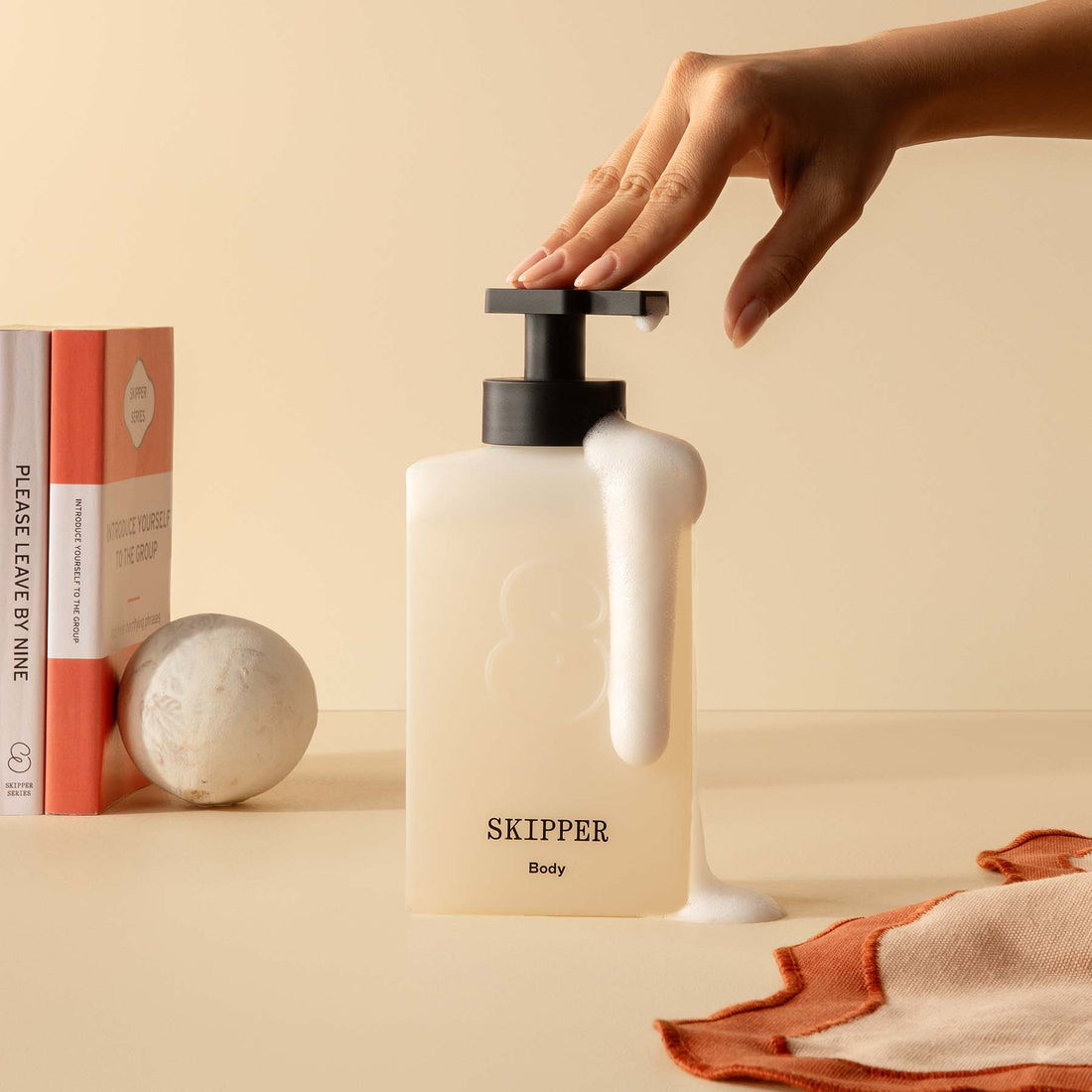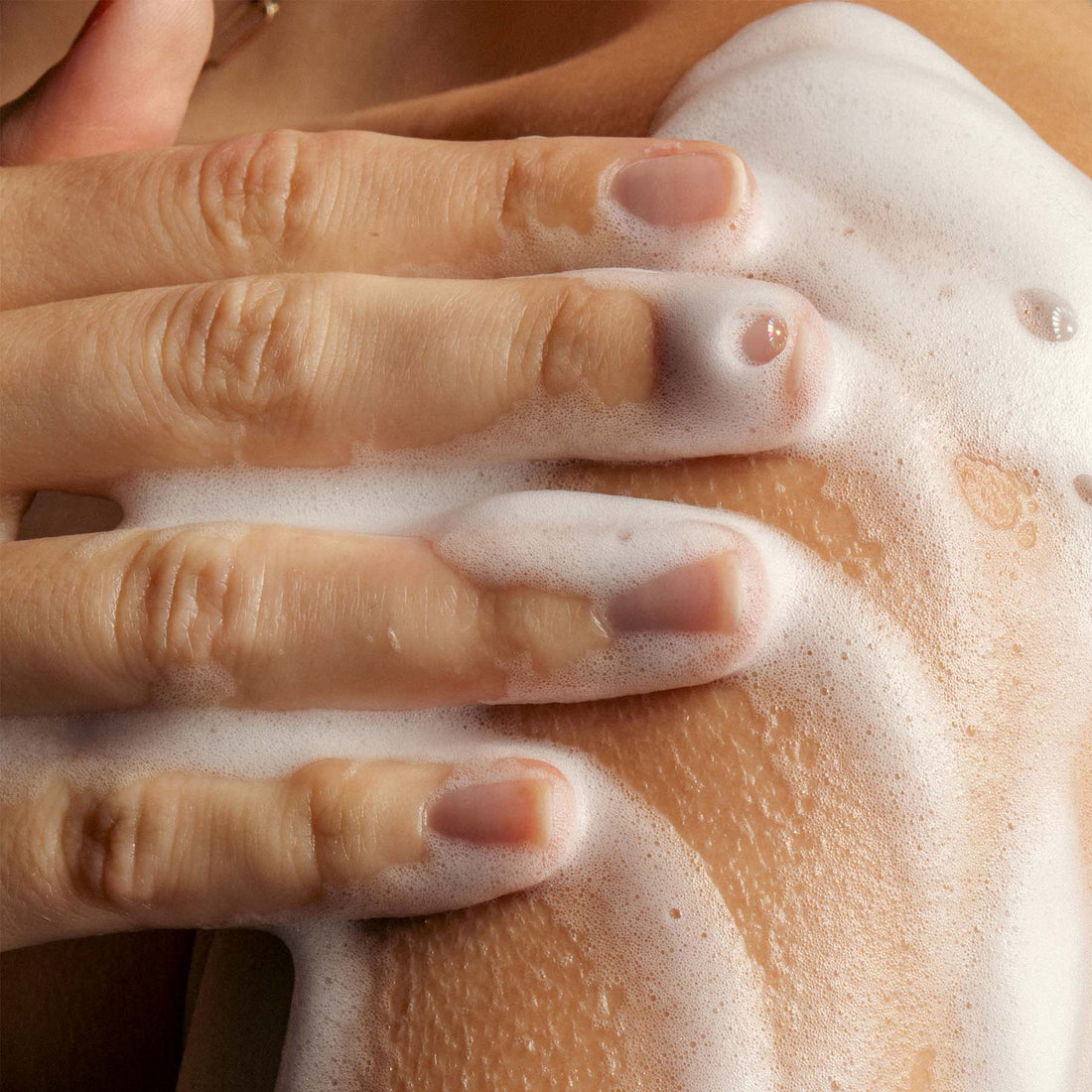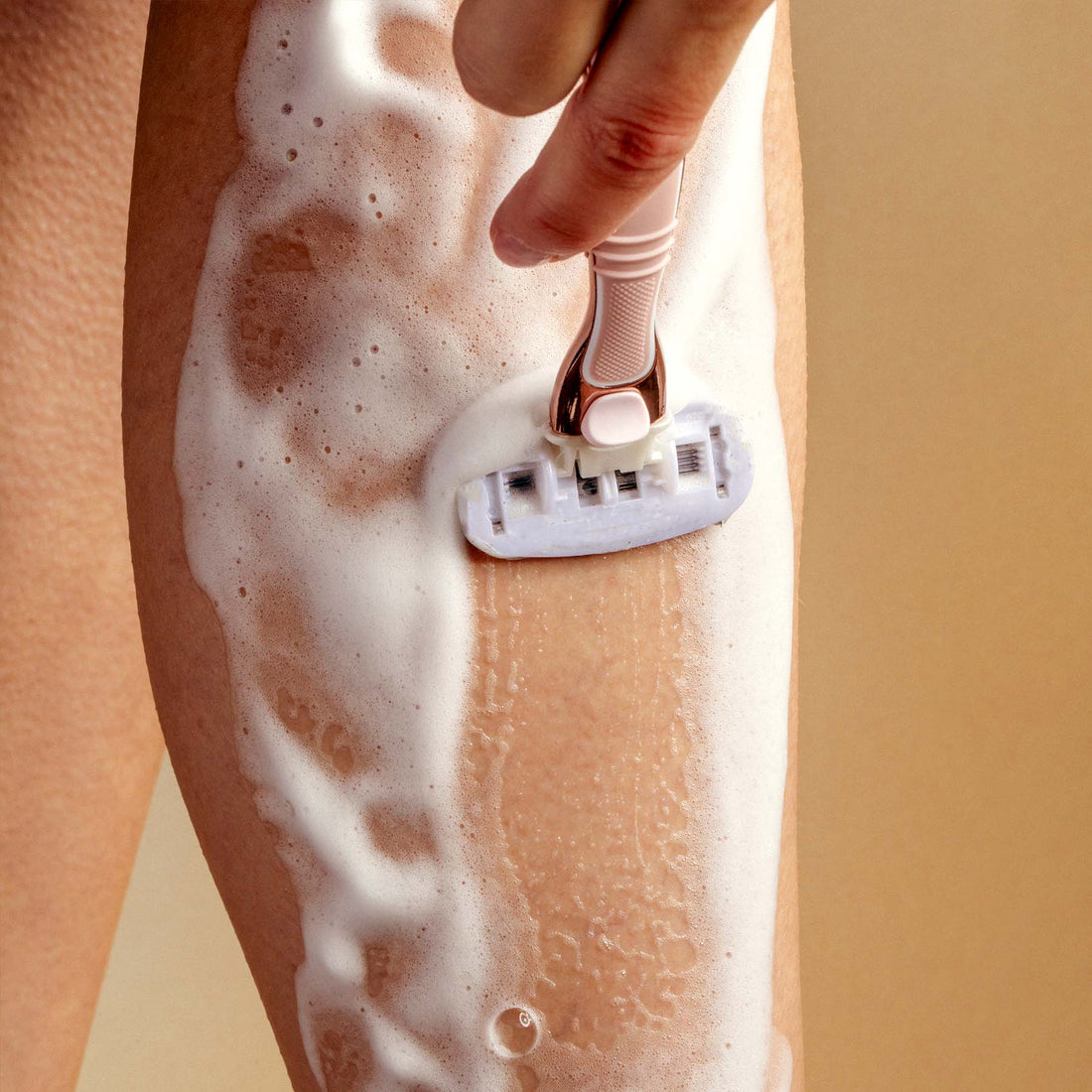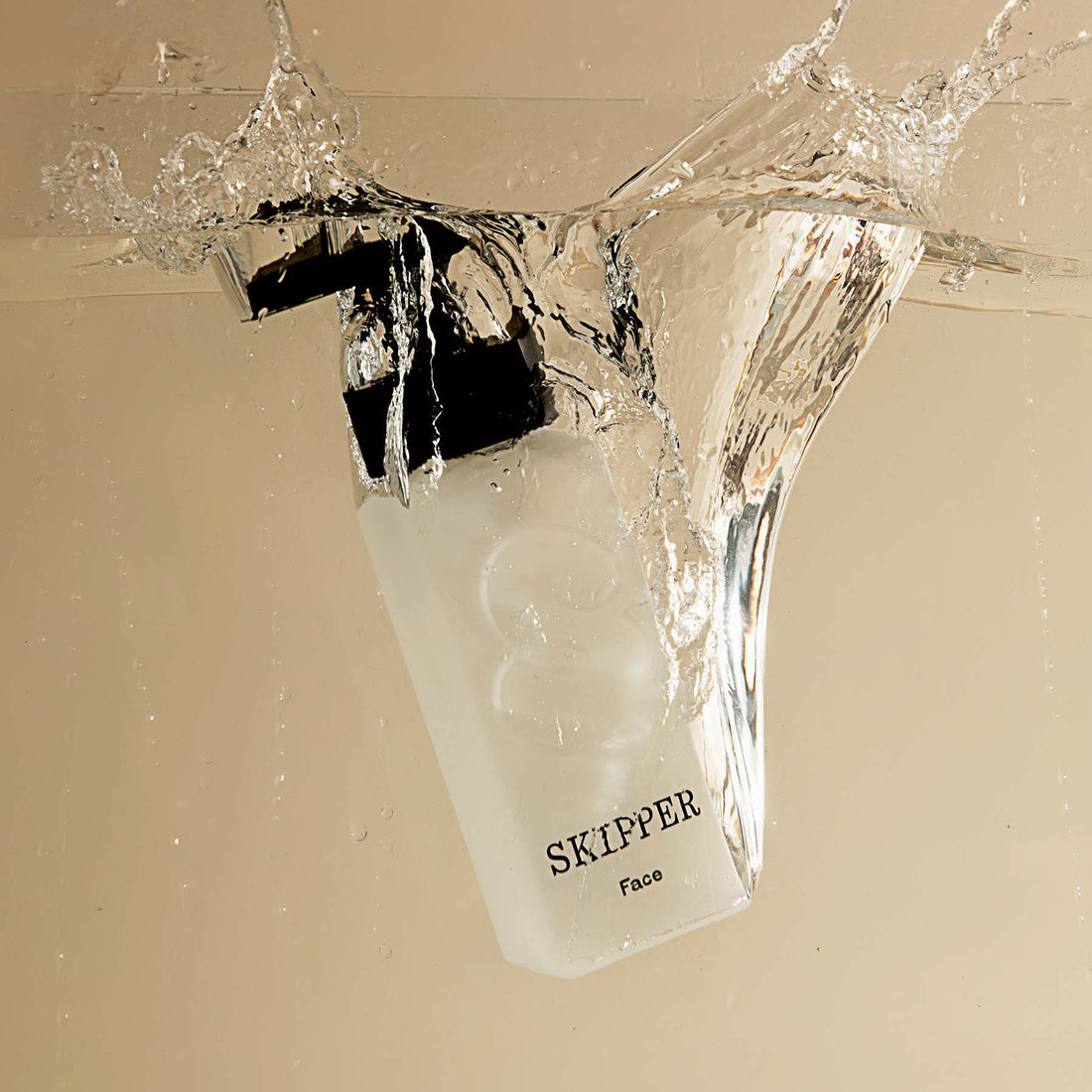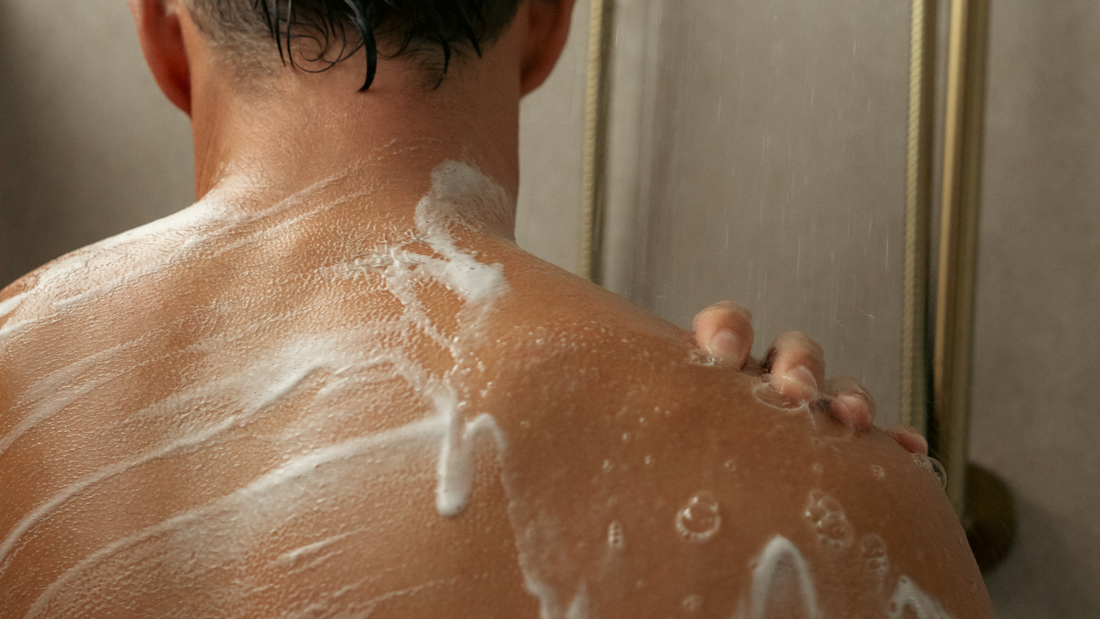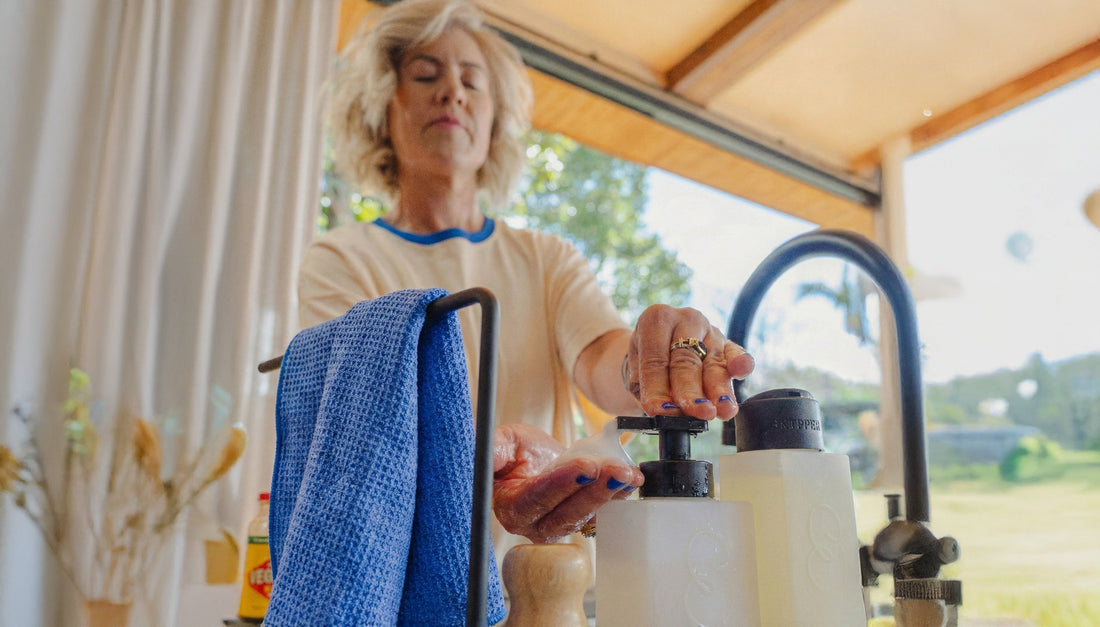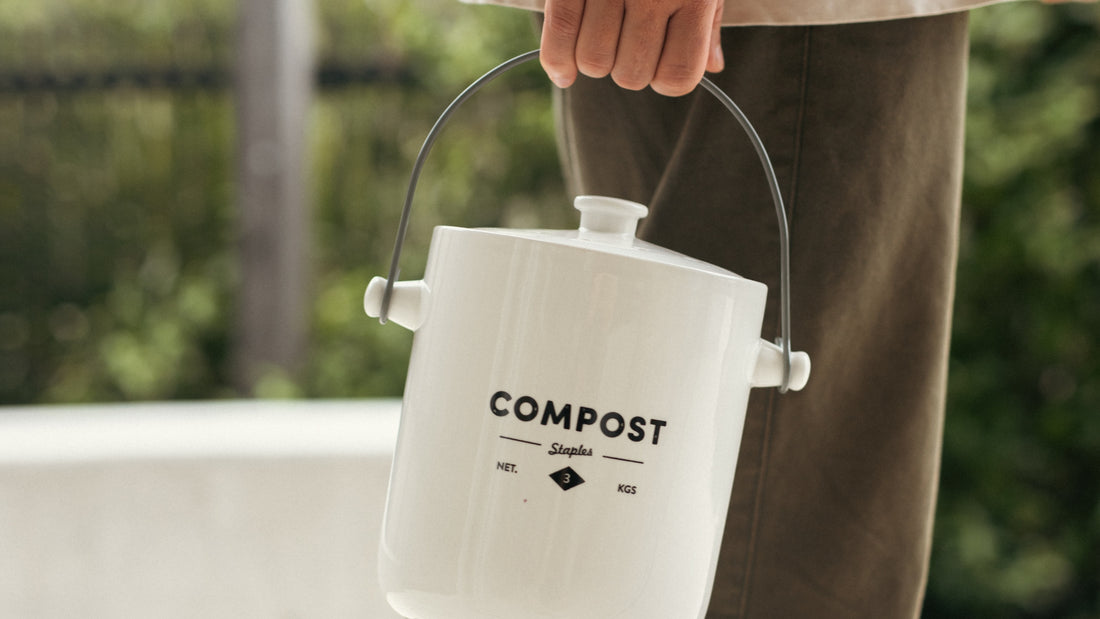
Selecting the right shower products to use on your body is a crucial yet often overlooked aspect of skincare. Often we’re so busy thinking about the skin on our face that we neglect to consider the products we’re putting on our body.
In an era where we have so many options to choose from, the decision between bar soap and body wash can seem particularly confusing.
Traditionally, body washes have been associated with plastic packaging and environmental concerns, contrasting with the minimalistic and eco-friendly nature of bar soaps. However, Skipper is changing the game with its innovative just-add-water body wash. This solution addresses the environmental issues typically associated with liquid cleansers by drastically reducing plastic waste.
In this comprehensive guide, we delve into the intricacies of both bar soap and body wash, providing a detailed comparison to assist you in making a smart, eco-conscious choice. Whether you're leaning towards the classic bar soap or curious about Skipper's sustainable body wash, this guide aims to align with your skin care needs, environmental values, and personal preferences, ensuring that your daily cleansing routine is not just about hygiene, but also about making a positive impact.
What is Bar Soap?

Bar soap, a timeless cleansing staple, has a long and rich history. This classic cleansing agent, typically crafted from a blend of natural fats or oils and an alkaline solution, such as lye, has been an integral part of personal hygiene routines for centuries. The earliest recorded evidence of bar soap dates back to ancient Babylon, around 2800 B.C., when archaeologists discovered soap-like materials and inscriptions detailing its production. In ancient Rome, the discovery of soap was attributed to Mount Sapo, where animal fats, rendered from sacrifices, mixed with wood ashes and clay, found use in cleaning garments.
As centuries progressed, the production and use of bar soap evolved. The Islamic Golden Age saw advancements in soap making, introducing essential oils and fragrances. In Europe, by the 12th century, soap guilds and soap makers emerged, marking its transition from a household craft to a commercially produced item. The Industrial Revolution further transformed soap-making into a more efficient, large-scale operation, making it widely available and affordable.
Advantages of Bar Soap
- Cost-Effectiveness: Bar soaps are typically more economical than regular body washes, offering a higher cost-to-use ratio. Thankfully for body wash lovers, Skipper’s just-add-water body wash has changed this standard.
- Environmental Footprint: With minimalistic packaging, bar soaps are a greener choice for eco-conscious consumers.
- Variety and Accessibility: Available in numerous scents, ingredients, and formulations, bar soaps cater to a wide range of preferences and are easily accessible in most stores.
- Long-Lasting: When stored properly, a single bar of soap can outlast several bottles of body wash, making it a durable choice.
Drawbacks of Bar Soap
- Skin pH and Dryness: Some bar soaps can be harsh on the skin, stripping away natural oils and disturbing the pH balance. Over time, the disruption of the skin's pH balance can lead to issues like increased dryness, irritation, or even exacerbation of skin conditions like eczema or acne. It's important for individuals, particularly those with sensitive skin, to choose bar soaps that are formulated to be gentle and pH-balanced.
- Bacterial Growth: Bar soaps can indeed become a haven for bacteria, especially when they remain damp and are used by multiple people. The surface of the bar soap can hold onto bacteria and germs from different parts of the body, which might be a concern in shared environments.
-
Convenience and Ease of Use: In comparison to body washes, bar soaps can be less convenient, especially when travelling. They need to dry out before packing, or else they can become mushy and messy. Unlike a leak-proof bottle of body wash, a wet bar of soap can be difficult to transport without creating a mess.
What is Body Wash?

Body wash is a liquid cleanser, a more recent innovation in the history of personal hygiene products. Unlike bar soap, body wash is a blend of water, surfactants (which are substances that help lift dirt and oil from the skin), skin conditioners, and often added fragrances and preservatives. Its liquid form and combination of ingredients are designed to create a gentle cleansing experience.
The concept of liquid body wash as we know it today started gaining popularity in the late 20th century. It was developed as an alternative to traditional bar soap, offering a more luxurious and convenient bathing experience. Early versions of liquid soap were primarily used for handwashing and were found in public restrooms. The development of body wash for personal use in showers and baths was a natural progression. This evolution was driven by advancements in chemistry and consumer demand for more sophisticated and specialised skincare products.
Over the years, body wash formulations have become increasingly advanced. They now cater to a wide array of skin types and concerns, from ultra-moisturising options for dry skin to oil-free formulas for acne-prone skin. The introduction of varied fragrances and textures transformed the shower experience, making it not just about cleanliness but also about relaxation and sensory pleasure.
Advantages of Body Wash
- Skin Conditioning: Many body washes are specially formulated with moisturisers like glycerin, shea butter, or oils such as coconut and jojoba. These ingredients help in maintaining the skin's natural moisture barrier, preventing dryness and promoting a softer, more supple skin texture.
- Diverse Options: From energising citrus scents to calming lavender, the range of fragrances and formulations is vast. Beyond fragrances, body washes come in formulations designed for specific skin types – from hydrating washes for dry skin to oil-free cleansers for oily or acne-prone skin. Some body washes also feature exfoliating ingredients like salicylic acid or natural scrubs for a deeper clean.
- Hygiene: Dispensed from a bottle, body washes are considered more hygienic, reducing the risk of germ transmission.
- Ease of Use: The liquid form and packaging of body washes make them more convenient and travel-friendly. Additionally, the dispensing mechanisms, like pump bottles or squeeze tubes, make it easy to control the amount of product used, reducing waste and ensuring a more economical use over time.
Drawbacks of Body Wash
- Environmental Concerns: The use of plastic bottles for packaging body wash contributes to environmental pollution.
- Price Point: Generally, body washes are pricier than bar soaps, which might affect budget-conscious consumers.
- Overuse: It's easy to use more products than necessary, leading to faster depletion and increased costs.
The great news? If you’re a fan of body wash over bar soap, Skipper’s just-add-water foaming body wash tackles all three of the above drawbacks mentioned. You refill your reusable dispenser with water, drop in a body wash tablet and you’ve got yourself a high-quality, zero-waste product.
From a price perspective, Skipper’s tabs are priced extremely well to help as many people make the switch to more sustainable options as possible. When you refill in bulk, you can save extra too.
Finally, due to Skipper’s body wash being a foaming product, with each pump, air enters the chamber and mixes with the products to create the foam. This means you’re using less product per pump when 6-8 pumps of foam are the equivalent of a standard squirt of gel!
Factors to Consider When Making Your Decision

Skin Type and Sensitivity
- Understanding Your Skin: Identifying your skin type (oily, dry, sensitive, etc.) is essential in choosing the right product.
- Allergy and Irritation: Those with allergies or sensitive skin should opt for hypoallergenic and fragrance-free options.
Specific Skincare Needs
- Targeted Treatments: Some products are specifically formulated to address issues like acne, eczema, or psoriasis.
- Age and Skin Health: Different age groups may require different skincare ingredients to maintain healthy skin.
Environmental Concerns
- Sustainable Practices: Look for brands that practice sustainability, offering products like vegan body wash or bar soap.
- Packaging and Waste: Consider the product's lifecycle, from production to disposal, and its environmental impact.
Assessing Your Preferences
- Fragrance and Texture: Personal preference in terms of fragrance and the feel of the product on the skin plays a significant role.
- Convenience and Lifestyle: Your lifestyle, including travel habits and storage space, might influence your choice.
Conclusion
Deciding between bar soap and body wash involves a blend of personal preference, skin type considerations, environmental impact, and practicality. By understanding the pros and cons of each, you can make a choice that not only benefits your skin but also aligns with your values and lifestyle. Embrace the journey of finding the perfect skincare product and enjoy the benefits it brings to your daily routine. For more information on Skipper’s body wash see here.

































